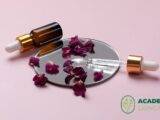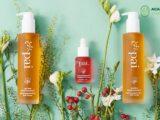How to Use Rose Water for Dry Skin to Get the Best Results
Last Updated on August 2, 2023 by Aysenur Yashar
Rose Water, commonly known as rose hydrosol in the scientific area, is a product obtained by the distillation of rose petals. The most widely used rose species for this is Rosa Damascena. It is a beautifully smelling product that has been used for cosmetic and medicinal purposes for centuries.
I am lucky to be born in “The Valley of the Roses” in Bulgaria, where the highest quality rose oil is produced. So here is a review of how to use rose water for dry skin inspired by the ancient rituals of rose oils and my homeland and, of course, the medical perspective.
Notice: This blog covers rose oil and water obtained from the species Rosa Damascena 🙂
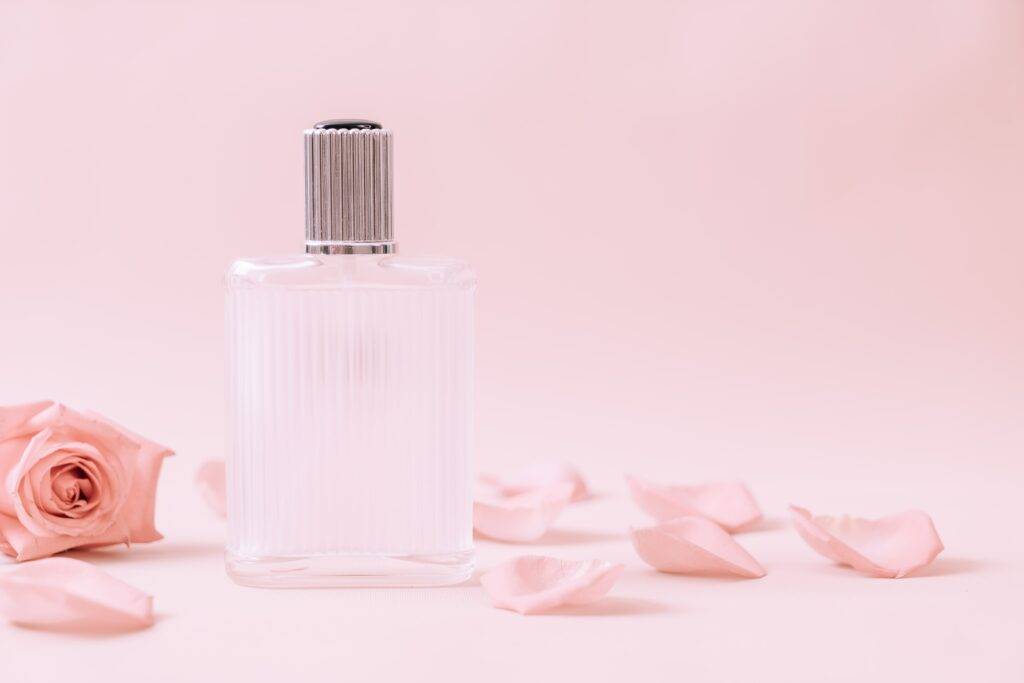
Can You Use Rose Water for Dry Skin?
Yes, you can absolutely use it. Rose Water is made out of two ingredients – water and rose oil and/or extract. The amount of rose oil contained is actually minimal 0.02% – 0.09%. The amount of rose oil can be little but it gives a good amount of hydration and helps in the recovery of the skin barrier. However, rose water itself cannot replace your moisturiser, rather the hydrating effect of rose water should be enhanced with another humectant and/or your moisturiser.
There is more that rose water can do for dry skin than hydrate. The use of rose oil and rose water dates back to ancient times. So here is a quick overview of the properties of rose oil and rose water. Let me know if you would find it interesting to see a separate blog post about them :).
Anti-Bacterial Properties of Rose Water on Dry Skin
Rose oil contained in rose water has mild acne-fighting properties, especially against certain strains of P. acnes. This makes rose water a good candidate for a skincare routine that targets mild break-outs.
Rose oil does have potent antibacterial properties however according to science the same does not apply to rose water. So if we also want to get those juicy antibacterial properties of our rose water we should chose our rose water carefully. Firstly chose the one with a higher concentration of rose oil and secondly be realistic about what rose water can achieve and do not expect a retinoid like effect 🙂 You can read more about the anti-bacterial properties of rose water below!
You can also read how to choose the right rose water below!

Anti-inflammatory and Antioxidant Properties of Rose Water on Dry Skin
Rosa Damascena is rich in vitamin C and Vitamin C has anti-inflammatory and anti-oxidative effects. However, the anti-inflammatory effects of Rosa Damascena seem to be reserved for a certain type of extraction – hydroalcoholic extract of Rosa Damascena. When compared to essential rose oil, the hydroalcoholic rose extract showed greater anti-inflammatory properties.
This opens new windows to use rose extracts in pharmacology and medicine, but unfortunately, neither rose oil nor rose water might not have the anti-inflammatory boost we were all hoping for. Nevertheless, I will still keep on looking into the scientific literature for updates!
However, the anti-oxidant properties of rose oil hence rose water is prominent and promising. It might be due to the high content of vitamin C. Essential rose oil from Rosa Damascena shows great protection against UV stress.
So getting that boost on the anti-oxidative qualities of rose water should be a goal for us! Dry skin can have a damaged skin barrier so it is important to add more anti-oxidative skincare into the routine. This will protect the skin and give the barrier some time to repair. Rose water is an easy and suitable way to add that hydration and anti-oxidant boost!
Rose Oil and rose water from Rosa Damascena has many pharmacological benefits that have been researched thoroughly. For the sake of simplicity I am not going into more details, but please let me know if you would like to see a separate post about it! 🙂
For now, let’s enjoy the graph below taken from this amazing scientific paper.
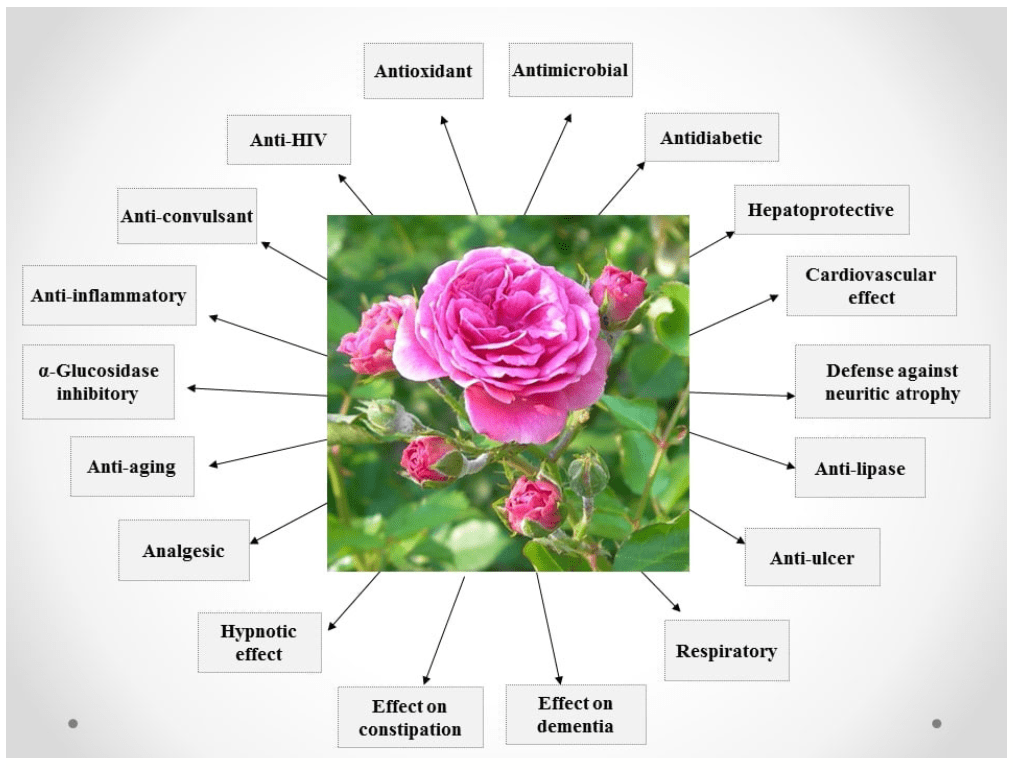
Rose oil or rosehip oil, if you are confused about the difference, check this blog out! Now back to rose water!
Should you use Rose Water before your Moisturiser?
Should you apply your rose water before or after your moisturizer? Use rose water before applying moisturizer. The hydration from the rose water should be sealed by a moisturizer or another humectant. Especially if you have dry skin, this would be a great method of giving fresh moisture to your skin before your skincare routine!
So I recommend applying rose water after removing makeup and cleansing your face. If you have dry skin, you can get better results if your rose water is a little colder. Cold water reduces the size of our pores and does not remove the natural oils from our faces. This is something we want for people with dry skin.
You can of course reapply rose water by spraying it after your whole skincare routine and even your makeup. That was actually how I first started using rose water but I did not see any of the beneficial results if I applied it after my moisturizer or my makeup, just some refreshment. But once I switched to using it before anything else, my skin looked significantly brighter and hydrated.
What to Mix your Rose Water with?
Rose Water is a hydrating liquid and you will get the most out of these benefits if you pair it with another humectant.
So far we covered that rose water is best when applied before your moisturizer. Also, for best results keep your rose water slightly cooler or colder. But when you have dry skin, there is never a thing like enough moisture and hydration. So pairing your rose water together with another humectant or hydrating agent will give you two benefits.
Benefit 1: Seal the hydration from your rose water and let your skin absorb the benefits of the rosa species.
Benefit 2: Give another hydration boost to your skin.
Having more hydrated skin will mean that your skin barrier works better. If your skin is healthy and thriving, it will absorb more of the goodies from your rose water. So it is a positive loop of events!
Let’s dive into what to mix your rosewater with.
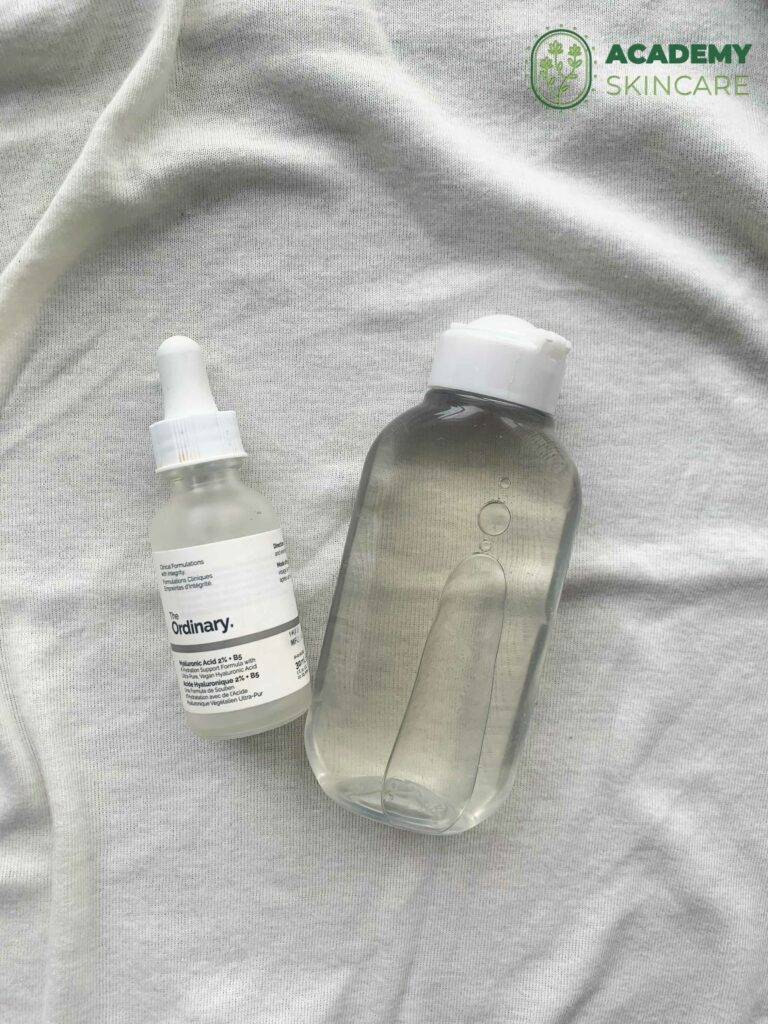
Mix Rose Water with Hyaluronic acid
If you have dry skin, hyaluronic acid is a God-sent and skincare must. As a person with dry skin that is prone to breakouts, I realized that any step of my skincare routine should include some kind of gentle hydration. Here is where hyaluronic acid and rose water can make a great combo!
Add some hyaluronic acid to your rose water in a glass or another empty skincare bottle and mix thoroughly before using. Make sure that 10% of your mixture is HA and the rest is rose water.
This mix works very well in removing makeup and dissolving some oily residues from our skin. Use this mix as micellar water to remove makeup or as a hydrating boost before applying your moisturizer.
The amount of hyaluronic acid and rose water you are going to use can depend on your own specific needs. I did not make this mix myself but instead got inspired by rose water after acquiring a unique product from a local skincare brand – Hyalurose Two-Phase Micellar Water by Nature of Agiva.
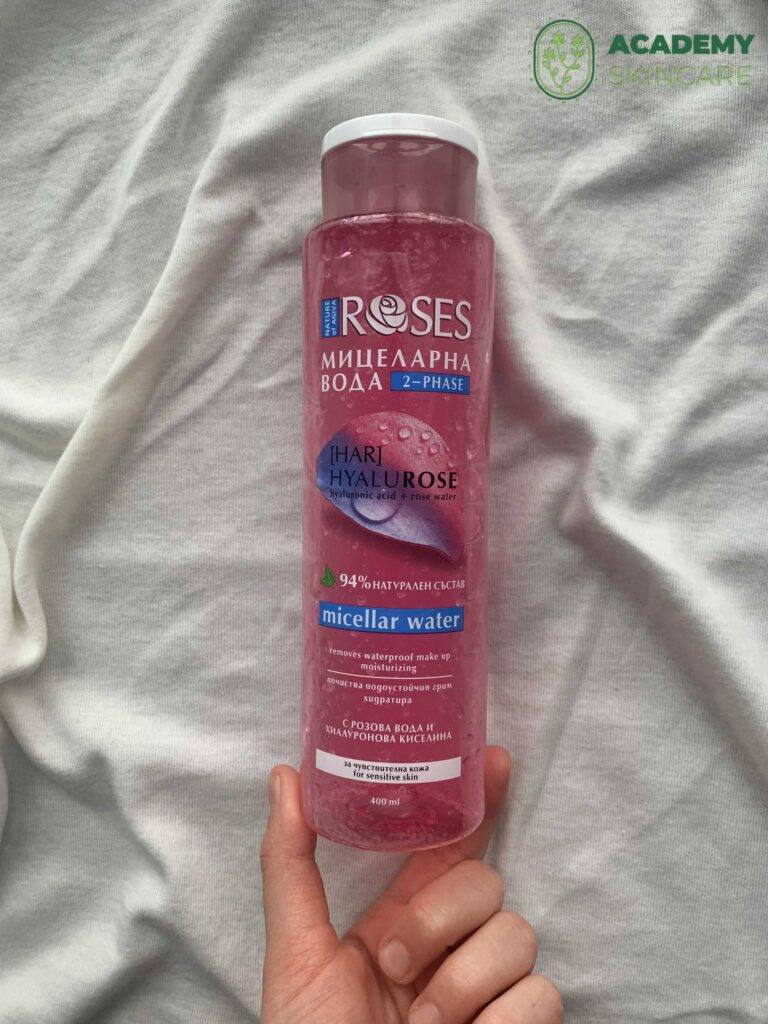
Hyaluronic acid (HA) is a humectant that draws water onto the surface of your skin. However, research also shows that HA can bind to some special receptors CD44 on our skin cells and regulate skin barrier function. Epidermal barrier function can usually be defective or damaged in dry skin types so hydrating and fixing the barrier are a must for anybody looking for healthier skin.
I highly recommend this mixture to anyone looking into various ways of adding some more hydration and natural ingredients into their skincare routine.
Mix with Glycerine
Glycerine is another natural humectant that your skin can benefit from. Glycerine is basically found in almost all of our skincare products because it actually is an essential component in keeping your skin hydrated. Topical application of glycerine has been shown to correct skin hydration in several studies.
The steps of mixing glycerine and rose water are almost identical to mixing hyaluronic acid.
Add rose water into a glass bottle or reuse an empty skincare bottle. Make sure that 80-90% of the mixture is rosewater – 4 tablespoons of rose water to 2 teaspoons of glycerin.
Before using this mixture shake thoroughly your bottle. Apply to your pad and then to your face.
I have personally not tried this but it seems to be an extremely popular combination so it was worth mentioning. You can use this for hydration or as a makeup-removing agent. Do not forget to moisturize afterwards 😉
How to choose the right Rose Water?
When choosing your rose water there are several things to pay attention to.
First, what rose is this rose water made out of? Second, what was the extraction method of rose water? Third, the color of your rose water.
Rose Type
The highest quality of rose oil comes from the species Rosa Damascena and a big majority is harvested from Bulgaria. This is why Bulgarian Rose is such a highly deemed cosmetic and skincare ingredient.
Opt for rose water made out of Rosa Damascena for the best results.
Roses that give rose oil can be harvested from different geographic regions. The biggest producers are Turkey, Bulgaria, Iran, and India. However, a study has shown that depending on the geographic regions there can be slight differences in the chemical composition of rose oil.

Extraction Method of Rose Water
There are 3 main ways of obtaining rose water – steam distillation, combining rose oil with distilled water, and combining rose essence with distilled water.
Steam Distillation is by far the best way to extract rose water. It is time-consuming and it is used from freshly picked rose petals. This method gives the highest quality rose water so pay attention to the extraction method of your rose water. Make sure that it says steam distillation on the back.
Mixing distilled water with rose oil is just the action of diluting the rose oil in water. You still can obtain a good quality rose water but it is not as high as steam distillation.
Mixing rose essence with distilled water is just the action of getting scented water. So if you want the benefits of actual rose water, I would recommend avoiding this one.
Color of Your Rose Water – Hint from the Rose Oil Producers!
The color of your rose water can tell a lot about the quality of your rose water. This a hint my beloved friend told me, who has many lands with roses harvested for their oils.
The highest quality of rose water needs to be transparent and have a yellowish tone, not a pure white color. The yellowish hue means that there is a higher concentration of rose oil and the rose water has been extracted by the highest technology.
If it is pure transparent without any color this could mean that it is just the essence of rose and distilled water, not actual rose oil.
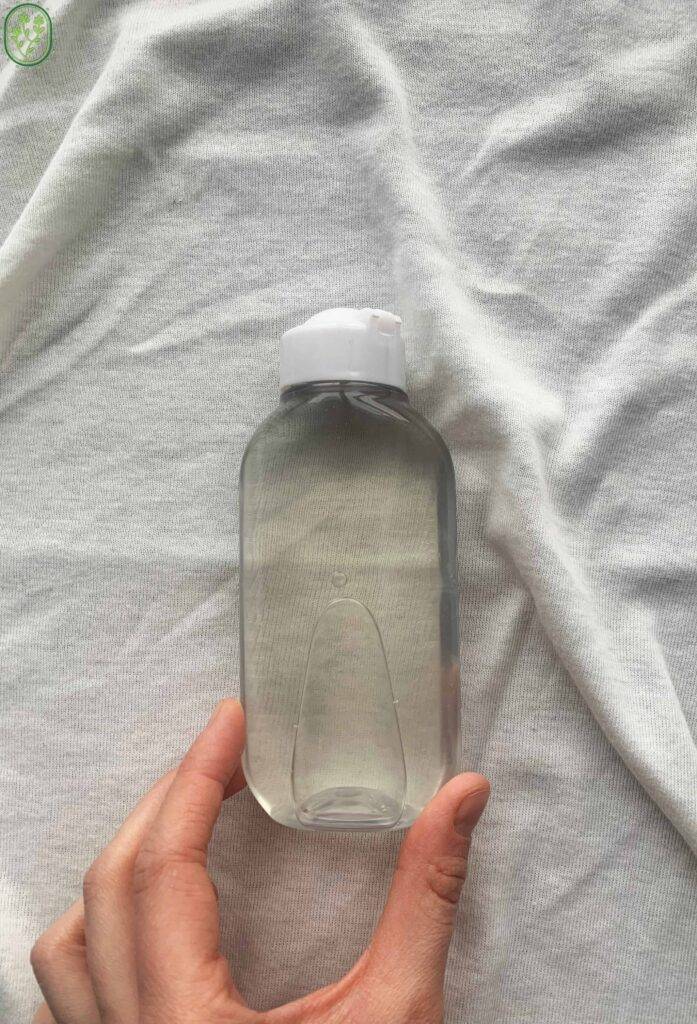
What is the shelf life of Rose Water?
Rose water has many benefits for the skin, but let’s not skip the major ones – it is relatively cheap and does not finish off as quickly. Honestly, how much rose water can you even use at once?
But with this lovely advantage comes the question – what is the shelf life of rose water?
Rose water can stay stable for about 1-1.5 years when stored properly. Scientists predict that rosewater might have some internal anti-microbial effects. Microbiological analysis shows that microbiological load in rose water is low and the load remains stable even after 1.5 years. Also after one year of storage of samples of rose water, there was little to no change in the major constituents of rose water. As a conclusion rose water components can stay stable for a long time if stored properly.
Does Rose Water have anti-bacterial properties?
Rose oil does have antibacterial properties but the science shows that rose water has less to almost none antibacterial properties.
Studies found that rose water contains geraniol (30.7%), citrenellol (29.4%), phenylethyl alcohol (23.7%), and nerol (16.1%) that are also found in rose oil but rose water has scarce amounts of phenolic compounds. The same study found high antibacterial properties of rose oil against certain strains of bacteria (S.aures, E. coli & P.aeruginosa). Rose water did not present such strong antibacterial properties. This could be explained by the less amount of phenolic compounds in rose water compared to rose oil.
Another study also found that the anti-bacterial properties of rose water were significantly less compared to alcohol-based hand rubbing creams. The study states that the compounds geraniol, citronellol, and nerol have antimicrobial effects separately, but perhaps in combination those chemical properties cancel one another.
However, choosing the right rose water with a higher rose oil concentration can help you get your hands on those juicy antibacterial properties. Nevertheless, enjoy hydrated, refreshed, and brightened skin with rose water!

